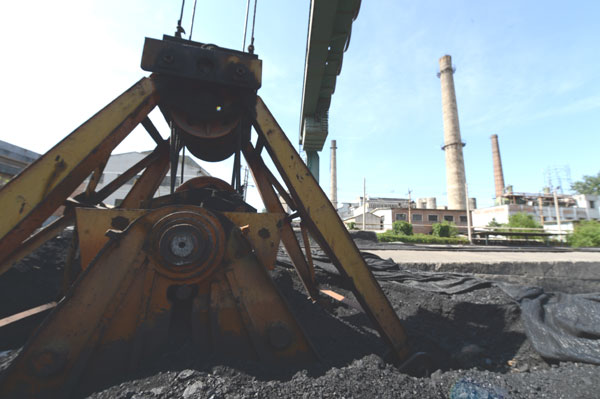Regional road map drawn up to combat air pollution
By Zheng Jinran (China Daily) Updated: 2015-06-17 07:49|
A coal yard that ceased operation after Beijing shut down boilers to improve air quality in the capital. Provided to China Daily |
Beijing has drafted the first regional road map for the control and prevention of air pollution in the area that includes the capital and neighboring Tianjin and Hebei province, a senior official from the municipal environmental authority said.
The medium-and long-term plan has set harder goals for cutting major airborne pollutants emissions by 2030. That will take the region beyond the current period set in the Action Plan on Air Pollution Control and Prevention, which set goals for 2017, said Li Lixin, head of regional coordination under the Beijing Bureau of Environmental Protection.
Based on the current action plan, by 2017 the concentration of PM2.5 - airborne particles smaller than 2.5 microns in diameter that can penetrate the lungs and harm health - will be reduced by 25 percent in the region.
According to the Ministry of Environmental Protection, in May, the reading in Beijing was 56 microgram per cubic meter, down 22.2 percent from April's figure and driven by a period of good weather.
"The Beijing-Tianjin-Hebei region has coordinated successfully on air pollution control in the past, which brought blue skies for the Asia-Pacific Economic Cooperation meetings in November," said Chai Fahe, deputy dean of the academy.
But regional efforts need a road map that clarifies unified targets and methods of assessment to improve the air quality step by step, he added.
On Tuesday, he revealed the results of the action plan on air pollution, which was implemented in 2013, at the International Workshop on Joint Air Pollution Control and Prevention in the Beijing-Tianjin-Hebei Region and the Surrounding Area.
The region has pushed forward its coordinated efforts, said Li, the coordinator from the bureau. He said six cities in the region - Beijing, Tianjin, Tangshan, Langfang, Baoding and Cangzhou in Hebei province - will set up unified early warning and emergency response systems for severe air pollution first, and then the rest of the region will follow.
Zhang Guoning, a professor at the Chinese Research Academy of Environmental Sciences, said it was no easy feat to unify standards on pollutant emissions in three areas with different requirements and levels of control.
"After 2020, we are expected to remove regional differences and set the same targets for the same industries and the same measurements for the same pollution sources," said Zhang.
Wang Yanfei contributed to this story.
Contact the writer at zhengjinran@chinadaily.com.cn
- Govt encourages people to work 4.5 days a week
- Action to be taken as HIV cases among students rise
- Debate grows over reproductive rights
- Country's first bishop ordained in 3 years
- China builds Tibetan Buddhism academy in Chengdu
- Authorities require reporting of HIV infections at schools
- Typhoon Soudelor kills 14 in East China
- Police crack down on overseas gambling site
- Debate over death penalty for child traffickers goes on
- Beijing to tighten mail security for war anniversary








